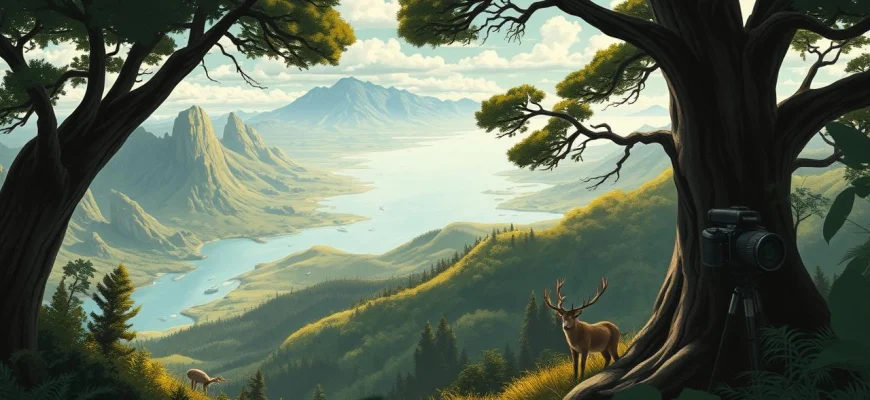If you're a fan of the breathtaking visuals and awe-inspiring storytelling of 'Planet Earth' (2006), you're in for a treat. This article explores 10 similar movies and shows that capture the same sense of wonder, showcasing the beauty and complexity of our natural world. Whether you're a nature enthusiast or simply love high-quality documentaries, these recommendations will transport you to stunning landscapes and introduce you to fascinating wildlife.
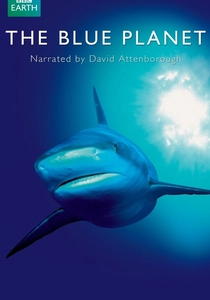
The Blue Planet (2001)
Description: 'The Blue Planet' is a precursor to 'Planet Earth', focusing on marine life and oceans. Both series are narrated by David Attenborough and produced by the BBC, featuring groundbreaking underwater cinematography. They share themes of exploration and the interconnectedness of life, with 'The Blue Planet' providing a more specialized focus on aquatic ecosystems.
Fact: 'The Blue Planet' was the first comprehensive documentary series on marine life. It took five years to film and involved over 200 locations. The series inspired a sequel, 'Blue Planet II', in
 Watch Now
Watch Now 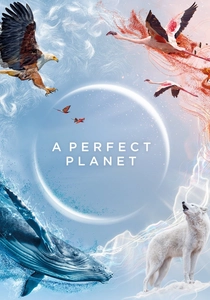
A Perfect Planet (2021)
Description: 'A Perfect Planet' is similar to 'Planet Earth' in its comprehensive look at Earth's natural systems and the forces that shape them. Both series are narrated by David Attenborough and produced by the BBC, featuring stunning visuals and a focus on the delicate balance of nature. 'A Perfect Planet' adds a stronger emphasis on how natural forces like weather and volcanoes influence life.
Fact: 'A Perfect Planet' was filmed in 31 countries over four years. The series highlights the role of natural forces like sunlight and ocean currents. It includes footage of rarely seen events, such as volcanic eruptions nurturing life.
 Watch Now
Watch Now 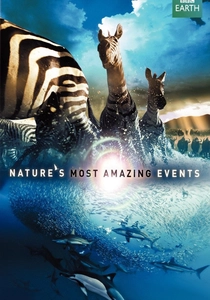
Nature's Great Events (2009)
Description: This series is similar to 'Planet Earth' in its epic scale and focus on natural phenomena. Both are narrated by David Attenborough and produced by the BBC, featuring spectacular footage of wildlife and environmental events. 'Nature's Great Events' zeroes in on specific seasonal occurrences, such as the great migration or the melting of the Arctic ice.
Fact: Each episode focuses on a single natural event, like the salmon run or the Arctic summer. The series uses high-definition cameras to capture rare moments. It highlights the impact of climate change on these events.
 Watch Now
Watch Now 
Life (2009)
Description: Similar to 'Planet Earth' (2006), 'Life' is a nature documentary series that explores the diversity of life on Earth. Both series are produced by the BBC Natural History Unit and feature stunning cinematography, high-definition footage, and narration by David Attenborough. They share themes of survival, adaptation, and the beauty of the natural world.
Fact: 'Life' was filmed over four years and covers 130 different species. The series uses advanced filming techniques, including time-lapse and high-speed photography. It won two Emmy Awards for Outstanding Cinematography and Outstanding Music Composition.
 Watch Now
Watch Now 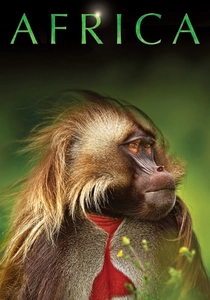
Africa (2013)
Description: 'Africa' is similar to 'Planet Earth' in its sweeping portrayal of the natural world, with a focus on the African continent. Both series are narrated by David Attenborough and feature stunning visuals and in-depth storytelling about wildlife and ecosystems. 'Africa' provides a more regional focus, highlighting the unique biodiversity of the continent.
Fact: 'Africa' was filmed over four years and includes footage from 27 countries. The series uses cutting-edge technology, such as thermal imaging cameras. It features rare species like the desert-dwelling elephants of Namibia.
 Watch Now
Watch Now 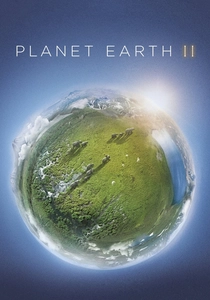
Planet Earth II (2016)
Description: As the sequel to 'Planet Earth', this series continues the tradition of breathtaking cinematography and in-depth exploration of Earth's ecosystems. Both series are narrated by David Attenborough and produced by the BBC, with 'Planet Earth II' utilizing even more advanced filming technology to capture intimate moments in nature.
Fact: 'Planet Earth II' was the first nature documentary filmed in 4K resolution. The series features a famous scene of iguanas escaping snakes, which went viral. It won two Emmy Awards, including Outstanding Documentary or Nonfiction Series.
 Watch Now
Watch Now 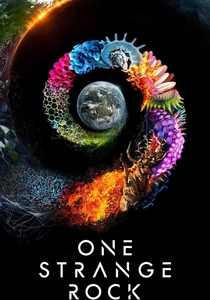
One Strange Rock (2018)
Description: While 'One Strange Rock' differs in its focus on Earth as seen from space, it shares with 'Planet Earth' a awe-inspiring look at our planet's beauty and complexity. Both series emphasize the interconnectedness of life and the fragility of ecosystems, though 'One Strange Rock' includes perspectives from astronauts.
Fact: 'One Strange Rock' is hosted by Will Smith and features interviews with astronauts. The series combines space footage with ground-level natural history. It explores how Earth's systems support life in unique ways.
 Watch Now
Watch Now 
Dynasties (2018)
Description: 'Dynasties' is similar to 'Planet Earth' in its focus on the natural world and its use of breathtaking cinematography. Both series are narrated by David Attenborough and produced by the BBC. 'Dynasties' delves deeper into the lives of individual animal families, providing a more intimate look at their struggles and triumphs, much like the episodic focus of 'Planet Earth'.
Fact: Each episode of 'Dynasties' follows a different animal family, such as lions or penguins. The series was filmed over four years across multiple continents. It features never-before-seen behaviors of the animals studied.
 Watch Now
Watch Now 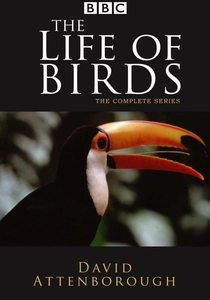
The Life of Birds (1998)
Description: 'The Life of Birds' is similar to 'Planet Earth' in its detailed exploration of a specific group of animals, in this case, birds. Both series are narrated by David Attenborough and produced by the BBC, featuring stunning visuals and insightful commentary on animal behavior and ecology.
Fact: 'The Life of Birds' was filmed over three years across 42 countries. It covers all aspects of bird life, from mating rituals to migration. The series uses slow-motion footage to capture birds in flight.
 Watch Now
Watch Now 
Wild China (2008)
Description: 'Wild China' shares with 'Planet Earth' a focus on the beauty and diversity of natural landscapes and wildlife. Produced by the BBC and China Central Television, it explores the unique ecosystems of China, much like 'Planet Earth' does for the entire globe. Both series emphasize conservation and the delicate balance of nature.
Fact: 'Wild China' was the first co-production between the BBC and China Central Television. It covers six distinct regions of China, from the Himalayas to the tropical south. The series won an Emmy for Outstanding Cinematography.
 Watch Now
Watch Now 
